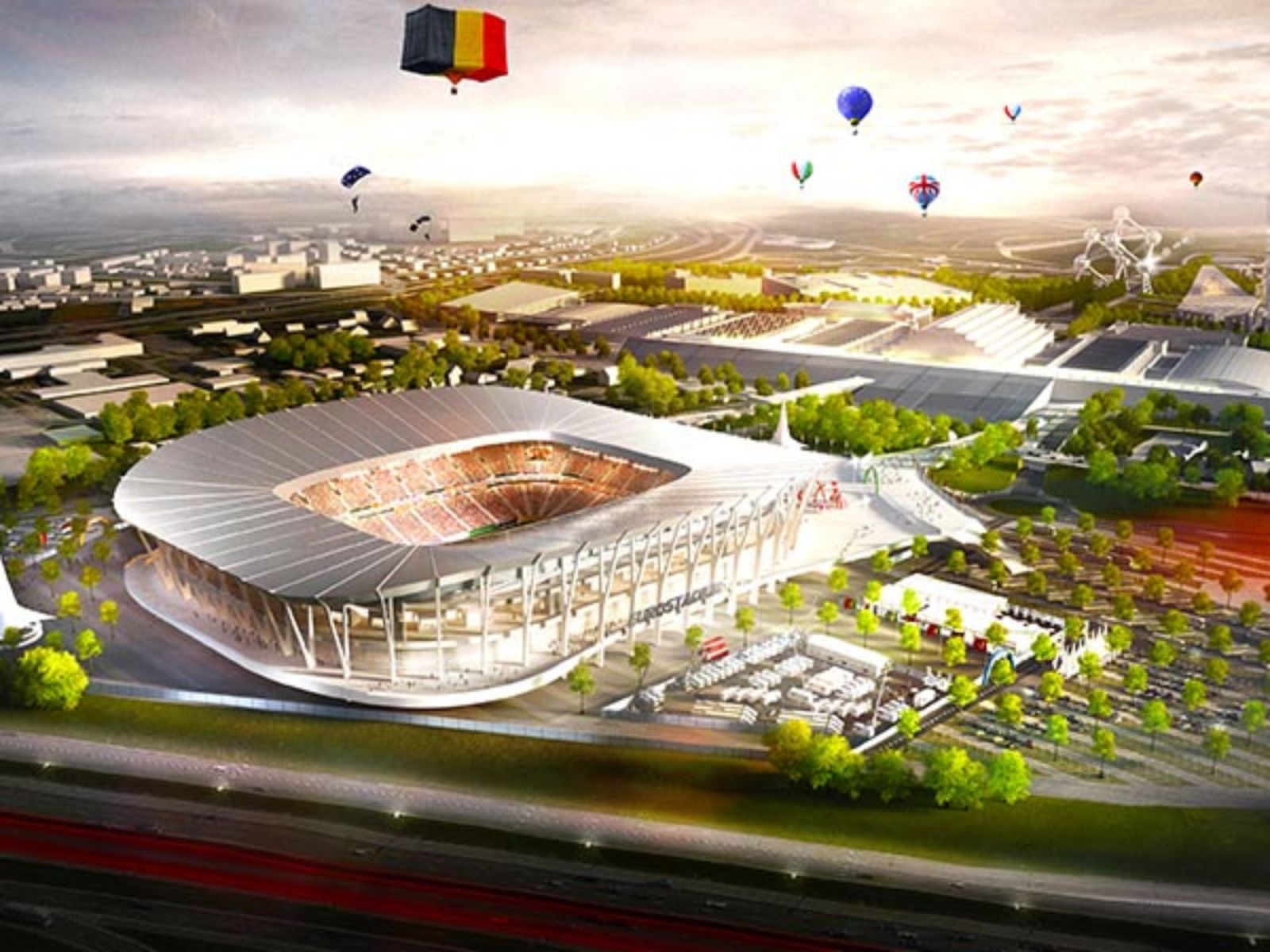By Samindra Kunti
November 30 – Belgium’s proposed Brussels-based stadium for EURO2020 has landed in the middle of another storm of controversy after the city of Brussels gave the projected building site of the stadium in leasehold to building consortium Ghelamco for a symbolic euro.
On September 19, 2014 UEFA selected 13 venues to host Euro 2020, a pan-European tournament, which former UEFA president Michel Platini coined a “romantic” one-off to celebrate the 60th birthday of the European Championship. Brussels was chosen ahead of Cardiff to host group matches and a round of 16 match.
With the King Baudouin Stadium outdated, Belgium proposed the ‘Eurostadium’, a state-of-the-art all-seater stadium on the outskirts of Brussels as the venue for its Euro 2020 bid with a construction delivery date in 2019. The City of Brussels council proceeded to choose the Ghelamco consortium as the candidate to finance, build and exploit the stadium.
The stadium will host matches of Belgium’s national team and RSC Anderlecht, Brussels’s biggest and Belgium’s most decorated club. Club Brugge opposed the Eurostadium, citing disproportional benefits for Anderlecht.
The city of Brussels has now handed the projected building site of the stadium in leasehold for 99 years to Ghelamco for a symbolic euro, local media reported. Ghelamco will be allowed to build office space, hotels and restaurants on the site.
Ruling far-right party N-VA has demanded transparency from Brussels minister Guy Vanhengel and alderman Alain Courtois. Courtois was one of the driving forces behind the organisation of Euro 2000, co-hosted by Belgium and the Netherlands. He also spearheaded the Low Land’s bid for the 2018 World Cup. Courtois has always operated in the shadows of the Belgian football landscape.
It is not the first time the Eurostadium has hit a snag. The Euro 2020 stadium may face delays in construction after a negative initial environmental report cast doubt over the viability of the venue. This caused the timeline of construction to be moved back.
The projected price tag of €432 million for taxpayers is also raising eyebrows, with the stadium facing opposition over public funding. In the Brussels parliament local politicians repeatedly stated that the new stadium wouldn’t cost the Belgian tax payer a penny, but such claims may not be true: the Brussels council, the Brussels region and the Flemish government will invest €80 million in the parking, €123 million in the exploitation of the stadium, €150 million in access roads, €33 million in security, €45 million in lease and €1.3 million in legal fees, according to local newspaper Het Laatste Nieuws.
UEFA has repeatedly warned that Brussels must meet the delivery deadline of 2019.
Contact the writer of this story at samindra.kunti@insideworldfootball. com

